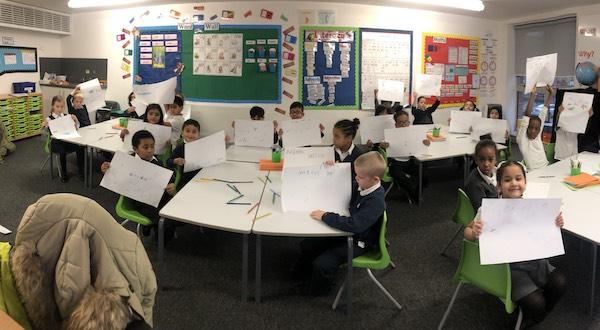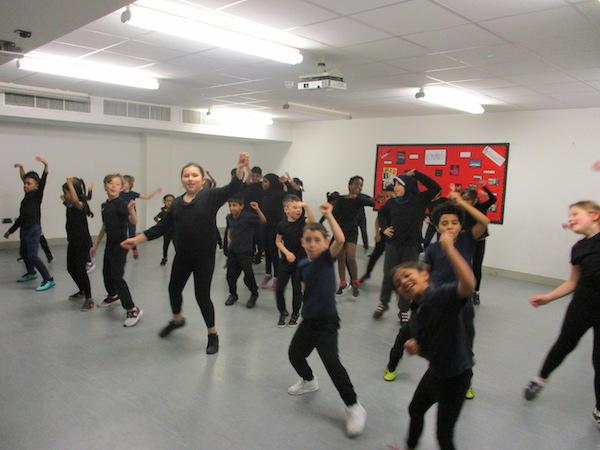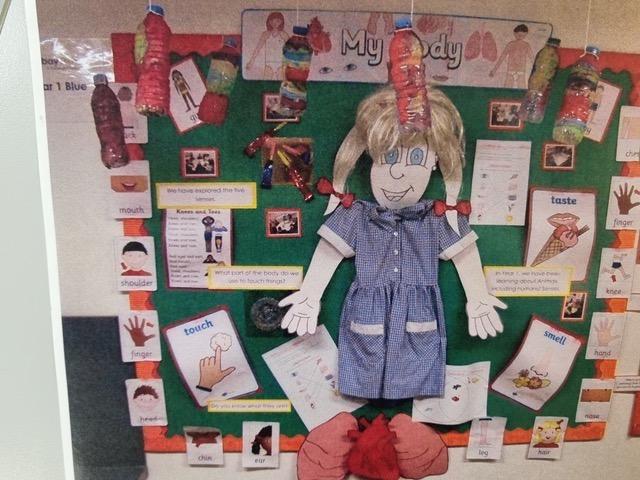Inclusive Learning – Giving Every Child Their Chance
At Solebay, we work hard to ensure every one of our pupils has the tools and support they need to be able to learn in the same manner as their peers.
Often inclusive learning is seen as something solely for children with SEND. While this is certainly part of it, inclusive learning is far more – it is a practice which includes everyone.

We approach it by looking at the individual needs of every child at our school. These can be academic, and often are, but we also examine other factors such as independence, resilience and attention skills. There are often other barriers to learning to consider, including social, gender and economic issues. This holistic approach allows us to see the whole picture, and from there we are able to take positive action and provide the most effective support.
Pupils at Solebay learn in age-appropriate general education classes, regardless of their individual needs or learning barriers and we give them high-quality instruction, interventions and other support that enables them to succeed. Teachers ensure that all pupils are included in effective learning and personalise their individual pathways to enable them to access all areas of learning.

As an example of the work we do, all the children are taught dance by a specialist teacher. These inclusive dance activities meet the needs of every child in the class regardless of their ability, with a focus on exploring and developing individual creativity, self-expression and physical potential. This helps pupils build their confidence and self-esteem, and there is a positive effect on social interactions, especially where pupils may not have a common spoken language.
We also focus on ensuring pupils with SEND have experiences that support them in everyday life, so that they can feel valued in our community. We celebrate differences through daily practice as well as focus days and therefore pupils make an effort to include everyone and to treat everyone the same.
It is unreasonable to expect children to do their best learning if their mental health is suffering, and research shows this is a growing concern among children and young people across the country. Covid in particular has caused many pupils to experience fear, isolation and anxiety. Therefore we remain focused on ensuring that we promote positive mental health and wellbeing, and that our pupils and staff have the best possible help available to them.
Much of the support we provide is done from within our school, however if we feel we don’t have the right resources to give the most effective support we will use external specialists instead. We also work closely with other schools in the Trust, regularly meeting to work together, share best practice and expertise, which can then be applied successfully to the individual schools.
By committing to inclusive learning we are supporting all pupils to become confident learners and well-rounded individuals equipped with the skills they need to build healthy relationships and make good choices now and in the future.
P3 Re-opening
Our fun and friendly after school provider P3 are hoping to re-open their services in our school. If you need childcare until 5:30pm they can help. To register create an account via https://p3charity.magicbooking.co.uk for your children. Please take the time to fill in all information regarding your child/children, including who can collect, emergency contacts, your child’s needs and consents. Once you’ve created your account please register your interest to linda.hamilton@p3charity.org and state the days you need, year group, children’s names and preferred start date. They accept children from 4yrs as long as they are independent in toileting. The cost is £11 per child per day. For more information contact Linda Hamilton .
The Science of Teaching Science
Having an effective understanding of science is incredibly important both for the individual and society. Children are entitled to know how the world works – without this knowledge their lives aren’t as rich. A good understanding of science will allow them as adults to make informed decisions on important matters, such as voting, or receiving a vaccination as has been seen recently. And it opens doors to numerous careers in a huge range of fields, not just the ‘traditional’ science professions.

Our approach to teaching science is different from some schools, as they will use an inquiry-based learning approach, which involves minimal guidance from the teacher and pupils designing their own experiments to check their own hypotheses. For example, this could take the form of asking the children to look at a bug and see what they can find out. However, an increasing number of studies show this is ineffective as, without having the right knowledge in place, children won’t know the questions they need to ask to get the most out of the approach.
To teach science effectively we, and all Paradigm schools, use a ‘knowledge-first’ system instead, which focuses on teaching children the scientific knowledge before anything else. The teacher breaks problems into manageable parts and shows the solution to each, before the children practice using similar problems. By doing this, the children then have the foundation they need to be able to do the inquiry-based learning effectively. It also helps the children develop essential skills such as problem solving, understanding scientific texts or extrapolating accurate conclusions from results.
Another way we improve science outcomes is to meet regularly with teachers from the other schools in Paradigm Trust to share ideas. A large proportion of time is spent discussing ways in which children can be better prepared for the move from primary to secondary school, and how to make science effective from Nursery to Year 9. We have found by doing this there is now less disruption when pupils move from Year 6 to Year 7 and their learning experience is far smoother. Much of this work is led by Ben Rogers who is on the Education Committee at the Institute of Physics, and on the editing panel for the Association of Science Education journal. He is also part of the Ofsted Science advisory group, with a particular focus on primary schools.
Since we have been working this way it is noticeable that children are achieving better results and becoming more engaged in the subject. Between now and the end of the school year our curriculum will cover a huge range of scientific topics, including Forces and Magnets, Living Things and their Habitats, Light and Sound, Renewable Energy and Earth and Space.
